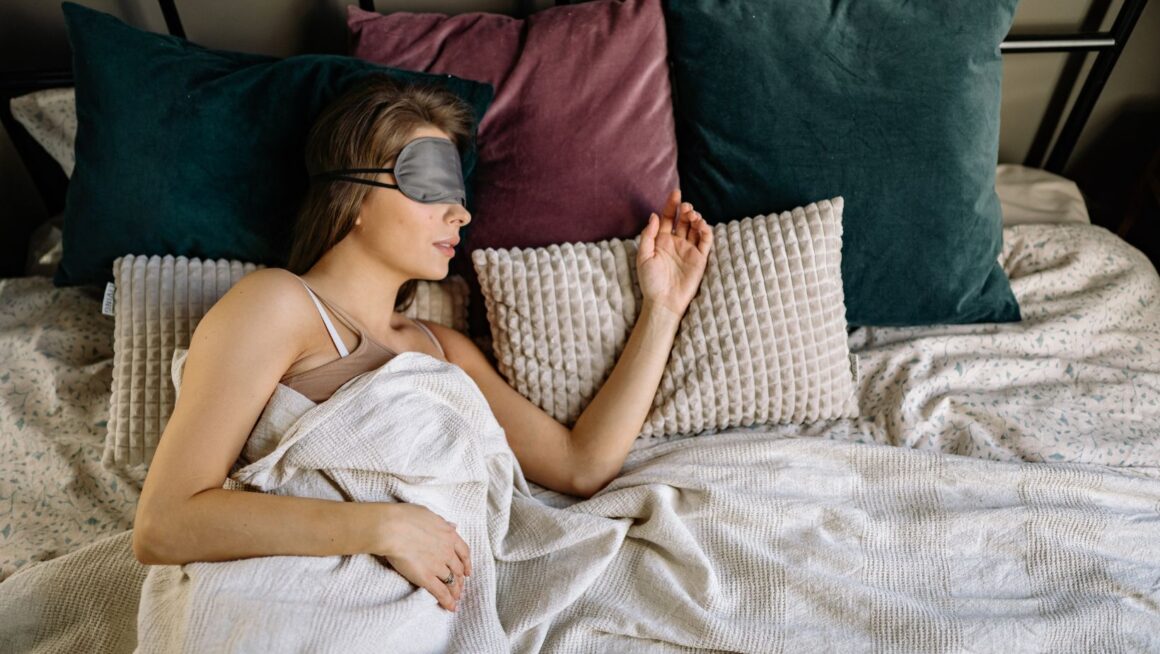Have you ever felt drained even after getting the recommended 7–8 hours of sleep? You’re not alone. Sleep is about more than just how long you’re out—it’s about the quality of that rest. Many people struggle with tossing and turning, waking up in the middle of the night, or simply not feeling refreshed.
The good news is that you don’t have to settle for poor sleep. With some intentional adjustments, you can create a foundation for deep, restorative sleep. Let’s explore five proven strategies to help you wake up energized and ready to face the day.
Why Sleep Quality Matters
We’ve all had nights when sleep felt elusive. But did you know that consistently poor sleep can impact more than just your mood? It affects every aspect of your life—your ability to focus, your emotional resilience, and even your long-term health.
Research shows that poor sleep is linked to conditions like obesity, diabetes, heart disease, and depression. It can weaken your immune system, making you more prone to illnesses, and even shorten your lifespan.
So, improving your sleep isn’t just about feeling good; it’s about living a healthier, more productive life. Let’s get started with actionable steps you can take to better your sleep.
Establish a Consistent Sleep Schedule
Have you ever noticed how children thrive on routines? Adults are no different! Your body’s internal clock, or circadian rhythm, relies on consistency to regulate sleep. When you stick to the same sleep and wake times daily, your body gets into a rhythm, making it easier to fall asleep and wake up naturally.
How to get started:
- Choose a bedtime and wake-up time that fits your schedule. Aim for at least 7–8 hours of sleep.
- Use an evening wind-down routine to signal to your body that it’s time to relax. This could include dimming the lights, reading, or meditating.
- Avoid the temptation to sleep in on weekends. If you stay up late, try to wake up within an hour of your usual time to keep your rhythm intact.
Over time, this consistency will help you wake up feeling refreshed instead of groggy.
Practice Relaxation Techniques
We’ve all had those nights when our minds just won’t stop racing. Whether you’re replaying the day’s events or worrying about tomorrow, stress can keep you awake long after you’ve climbed into bed.
That’s where relaxation techniques come in. These methods help calm your mind and prepare your body for deep sleep.
Some techniques to try:
- Deep Breathing: Inhale deeply through your nose for 4 seconds, hold for 7 seconds, and exhale slowly through your mouth for 8 seconds. Repeat this cycle until you feel more relaxed.
- Progressive Muscle Relaxation: Lie down and focus on one muscle group at a time, starting at your toes. Tense each muscle for a few seconds, then release it as you work your way up to your head.
- Meditation or Visualization: Apps like Calm and Headspace offer guided meditations specifically designed to help you sleep. You can also try visualizing a peaceful scene, like lying on a beach or walking through a forest.
- Relaxation Music: Listening to soothing music can help signal to your brain that it’s time to wind down. Try playlists with calming instrumental tracks, nature sounds, or scientifically designed focus music from apps like Brain.fm. Experiment to find what resonates with you—whether it’s soft piano, ocean waves, or a steady ambient tone.

Even just a few minutes of these practices can make a significant difference in how quickly you fall asleep.
Create a Sleep-Friendly Environment
Your bedroom should be your sanctuary—a space that invites relaxation and rest. If your room is too noisy, too bright, or even too cluttered, it can interfere with your ability to sleep well.
Transform your sleep space with these tips:
- Control the Light: Bright lights, including those from street lamps or electronic devices, can confuse your brain into thinking it’s still daytime. Use blackout curtains or an eye mask to block out light.
- Regulate the Temperature: A slightly cool environment (around 65°F or 18°C) helps your body relax and fall asleep faster. Use a fan or adjust your thermostat for optimal comfort.
- Reduce Noise: If you live in a noisy area, consider white noise machines, earplugs, or even calming music to drown out distractions.
- Invest in Comfort: Your mattress and pillows play a huge role in sleep quality. If they’re old, lumpy, or just uncomfortable, it’s time for an upgrade. Choose materials that support your sleeping style, whether you’re a back, side, or stomach sleeper.
When your bedroom is optimized for sleep, you’ll find it easier to drift off and stay asleep throughout the night.
Limit Screen Time Before Bed
Do you scroll through social media or binge-watch shows before bed? It might seem like a harmless way to unwind, but screens could be one of the biggest culprits behind your restless nights.
The blue light emitted by phones, tablets, and TVs suppresses melatonin, the hormone responsible for making you feel sleepy. This can throw off your body’s natural sleep-wake cycle.
Here’s what you can do instead:
- Set a “tech curfew” and turn off screens at least 30–60 minutes before bed.
- Replace screen time with relaxing activities like reading a physical book, journaling, or practicing gentle yoga.
- If you absolutely must use your devices, enable blue light filters or wear blue-light-blocking glasses.
Taking a break from screens allows your brain to wind down naturally, making it easier to fall asleep.
Watch What You Eat and Drink
Did you know that your evening snacks and beverages can impact your sleep more than you might think? While certain foods and drinks can help you relax, others can disrupt your sleep and keep you tossing and turning.
Tips for better evening choices:
- Avoid Stimulants: Stay away from caffeine in the late afternoon and evening. This includes coffee, tea, soda, and even some chocolates. Caffeine can stay in your system for hours, making it harder to wind down.
- Moderate Alcohol: While alcohol might make you feel sleepy at first, it can disrupt your sleep cycle later in the night.
- Light Dinners: Heavy, greasy meals before bed can cause discomfort and interfere with sleep. Aim for lighter meals and avoid eating at least 2–3 hours before bedtime.
- Sleep-Boosting Foods: Try snacks like bananas, almonds, or yogurt, which contain nutrients that promote relaxation. Herbal teas like chamomile or peppermint can also help signal to your body that it’s time to unwind.

These mindful choices can help you avoid late-night discomfort and set you up for a peaceful night.
Common Sleep Mistakes to Avoid
Even with the best strategies, certain habits can sabotage your sleep efforts. Here are a few common pitfalls to watch out for:
- Irregular Naps: Napping too long or too late in the day can throw off your sleep schedule. Keep naps short—20–30 minutes max—and take them earlier in the afternoon.
- Relying on Sleep Aids: Overusing over-the-counter sleep aids can lead to dependency and mask underlying sleep problems.
- Engaging in Stressful Activities: Avoid work emails, heated discussions, or intense workouts right before bed. These activities can raise your stress levels and make it harder to wind down.
Conclusion
Improving your sleep quality doesn’t require a complete lifestyle overhaul. It’s about making intentional, manageable changes that support better rest. From creating a consistent sleep schedule to transforming your bedroom into a sanctuary, each of these strategies can help you build healthier sleep habits over time.
Remember, it’s not about achieving perfect sleep overnight. Start small—pick one or two strategies that resonate with you and build from there. Sleep is a journey, and every step you take toward better rest is a step toward a healthier, happier you.
So, what’s your first step toward better sleep? Let me know in the comments below—I’d love to hear about your progress and support you on your journey!



